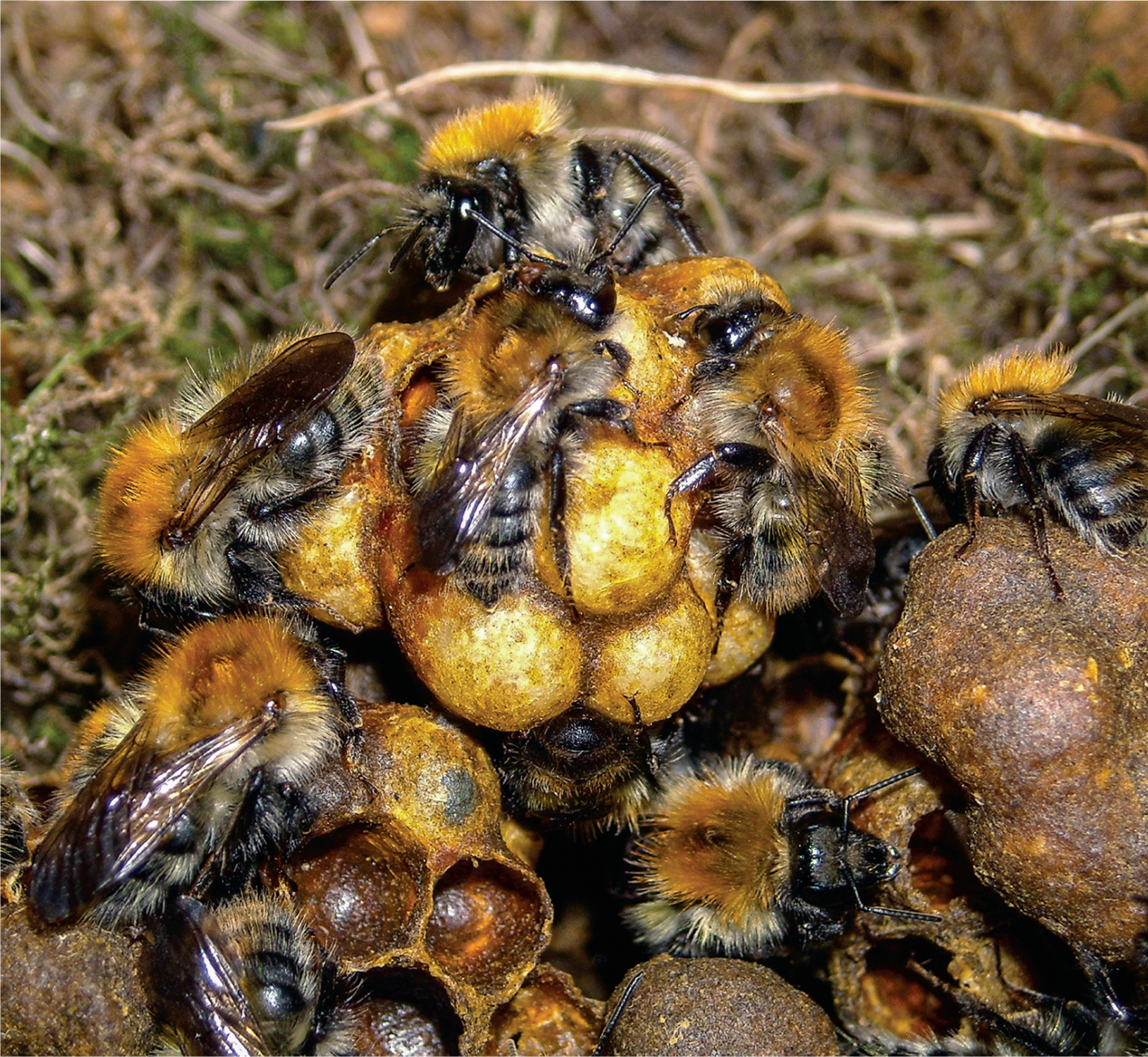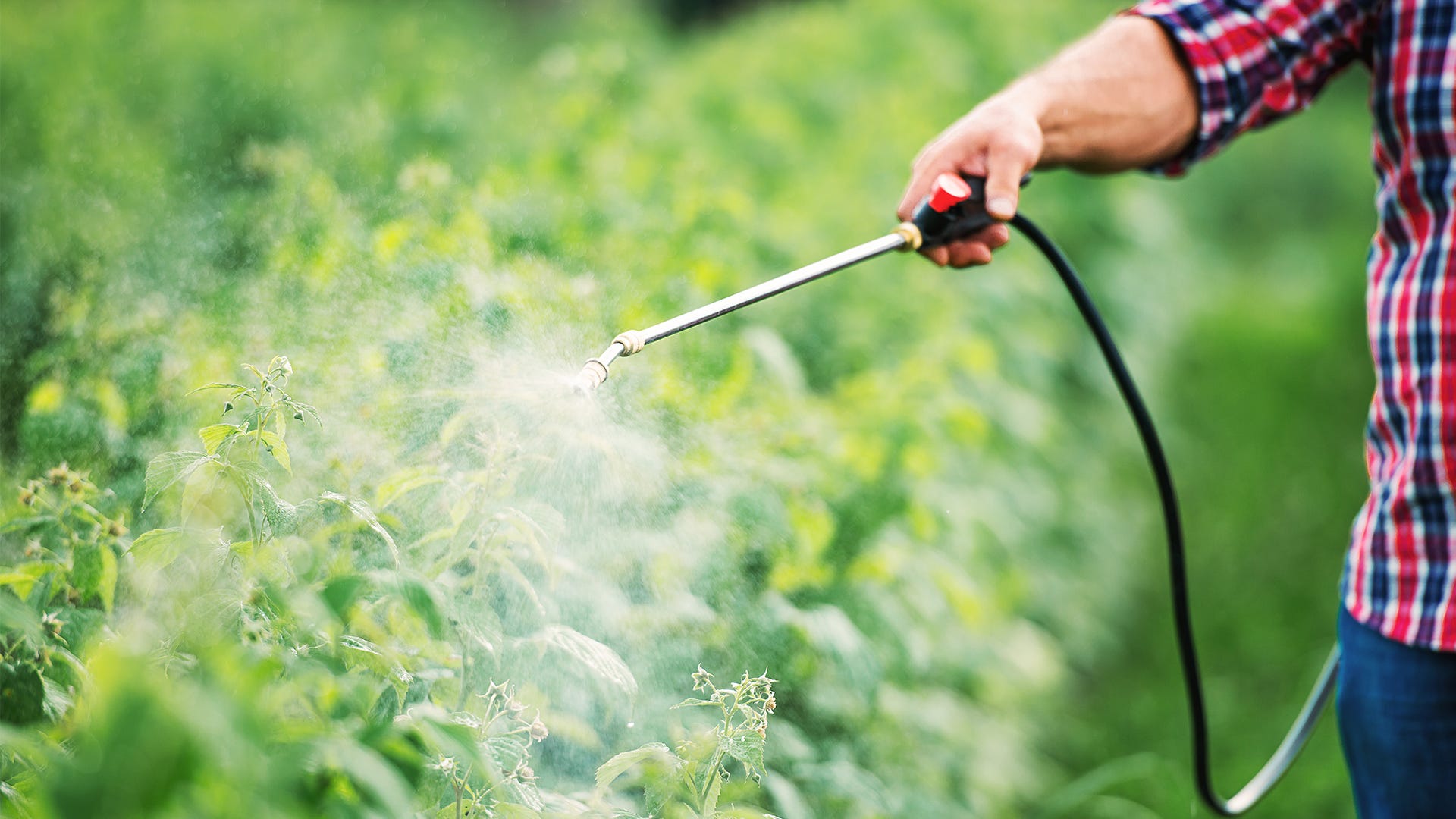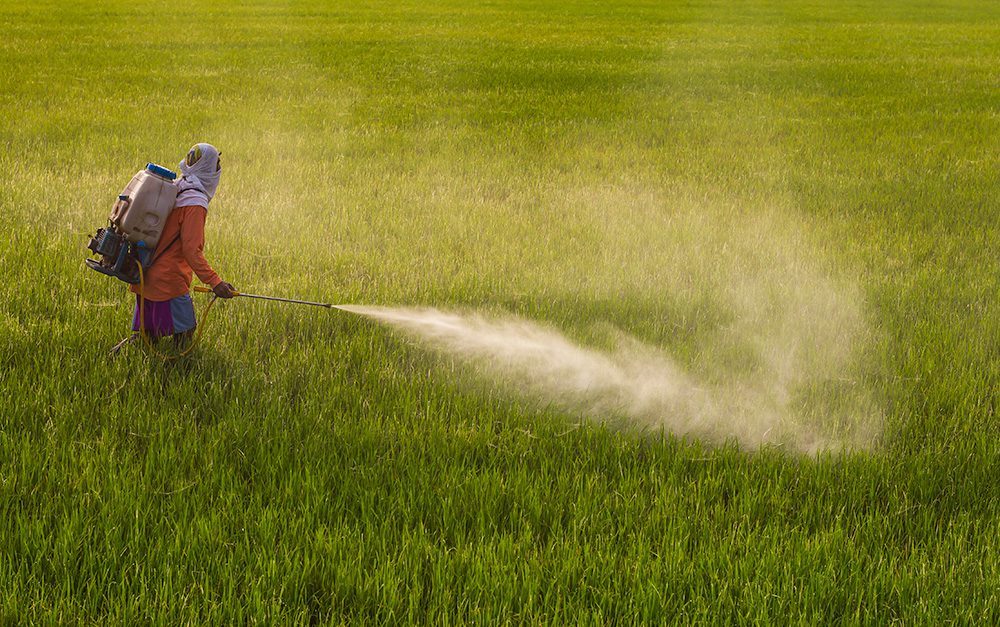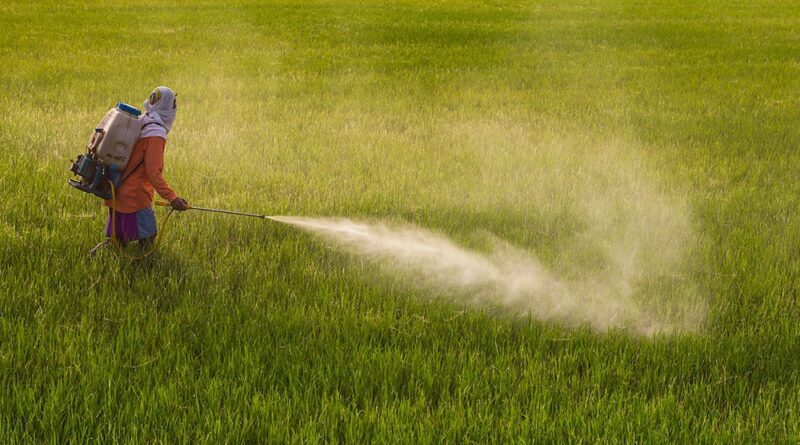Pesticides banned in the EU now end up on African plates
As the world continues to search for solutions to protect human health and the environment, there remains a puzzling issue in international trade: chemical pesticides that were banned by the European Union (EU) due to their harmful effects on health and the environment are still being exported to Africa, where they are used in agriculture at a high rate.
This appears to resemble a new form of colonialism of pesticides (chemical colonialism), where wealthy countries use poorer ones as dumping grounds for the toxic residues of their scientific mistakes.
A 2020 report by Public Eye showed that European companies sent at least 81,000 tons of pesticides banned within their own countries to poorer countries, mostly in Africa.
These pesticides include atrazine, paraquat, chlorpyrifos, acephate, and imidacloprid, all of which have the potential to cause severe health problems, including cancer, brain disorders in children, destruction of pollinators like bees, and soil degradation.
Public Eye confirmed that these pesticides, banned in the EU, have a thriving market in Africa, where health and environmental protection standards are less strictly enforced.

Farmer Melanie Nyiraneza explains that they are often trained on the dangers of these chemicals, but they find themselves compelled to use them because they are available on the market. Also, the land has already been accustomed to yielding good crops when these chemicals are used.
“We are often shown that these chemicals are poisons to the environment, and some even kill pests, but eventually, they render the soil infertile, and crops end up failing. When we face pest problems, we end up using them because they are sold on the market and there seem to be no other options. What we ask is that more effort be put into finding pesticide alternatives that meet quality standards, so we can stop using poisons, because by protecting people from hunger while they consume food that harms them, we are not heading in the right direction.”she said
Research shows that these chemicals lead to fatal health issues, with the farmer, consumers of contaminated crops, and even beneficial organisms in the soil suffering.
According to the World Health Organization (WHO), over 3 million people are affected by pesticide-related illnesses each year, with approximately 220,000 dying. Pesticides like paraquat are linked to cancer, respiratory diseases, and brain damage in children.
In 2021, the Food and Agriculture Organization (FAO) reported that bee populations were decreasing by 30-40% annually due to pesticides like imidacloprid and neonicotinoids, which significantly impacts crops that rely on pollination. Soil organisms like earthworms and microbes that play vital roles in soil fertility are also killed, resulting in land that cannot produce food sustainably.
Similarly, research by the International Union for Conservation of Nature (IUCN) in 2020 highlighted the harmful effects of chlorpyrifos on the brains of birds and other crucial insects.
Pollinators are key to ensuring that fruits and vegetables grow. The Ministry of Agriculture in Rwanda (MINAGRI) has indicated that crop yields for watermelon, cabbage, and papaya could decline by up to 30% if pollinators are reduced.

Pesticides like paraquat destroy the nutrients in soil, making it unable to regenerate its fertility, as demonstrated in a United Nations Environment Programme (UNEP) report in 2022.
Public Eye’s 2020 report also revealed that at least 81,000 tons of banned pesticides were exported to Africa. As reported by the Heinrich Böll Foundation in 2023, Nigeria imported 147,446 tons of toxic pesticides, including those banned in the EU, which were used in the cultivation of economic crops like cotton, vegetables, and fruits.
In 2018, 1,700 tons of EU-banned pesticides were found in South Africa, with 67 tons of those being highly toxic to both health and soil biodiversity, as outlined in the 2022 Solidar report.
In East African countries (EAC), Kenya leads in pesticide use, with 44% of the pesticides used in its agriculture being banned by the EU. A 2020 study confirmed a 41% decline in pollinator populations over 10 years due to the widespread use of chlorpyrifos and glyphosate.
Farmer Jean Bosco Hakuzuwera in the Burera District mentioned that traders often sell them cheap pesticides that are not safe. “We don’t know that these chemicals damage our soil and kill the birds and insects that protect our crops.”
Dr. Charles Bucagu, Director of Research and Development at Rwanda Agriculture Board (RAB), emphasized the need for awareness campaigns to educate farmers on which pesticides are safe and approved. He made this statement during a press briefing on August 29, 2023, at a conference organized by the Rwanda Climate Change and Environmental Development Network (RCCDN), the Rwanda Association of Environmental Scientists (RAE), and the International POPs Elimination Network (IPEN).
The conference in Kigali aimed to discuss the harmful effects of highly hazardous pesticides (HHPs) on health and the environment.
Dr. Bucagu pointed out the severe consequences of misusing pesticides, stating that RAB has compiled a list of approved pesticides, but there are still instances of banned products entering the country illegally, stressing the need for more robust awareness programs.

The conference focused on strategies to prevent the use of these pesticides, including encouraging farmers to use legal alternatives and adopt sustainable agricultural practices that do not harm the environment.
In Rwanda, there are now laws regulating the importation and use of pesticides.
MINISTERIAL ORDER No. 002/11.30 OF 14/07/2016 sets regulations for pesticides and fertilizers in Rwanda.
International legal gap:
The EU prohibits its companies from using these pesticides within Europe, but through the Rotterdam Convention, they are still allowed to sell them abroad if a requesting country requires them. This creates a loophole that allows the continued export of these harmful chemicals to countries with weaker regulations, as revealed by Public Eye in 2020.
Possible solutions include providing training to farmers, journalists, government agencies, and private sectors involved in sustainable farming, developing stricter regulations to prevent the importation and use of banned pesticides, promoting agroecology practices, and raising awareness on the health and environmental impacts of harmful pesticides.
In Nairobi, Kenya, from 1-2 February, a workshop was held in collaboration with AFSA, bringing together journalists from East African Community (EAC) countries, actors in sustainable agriculture, and others, to discuss the impacts of pesticide use and imports and explore sustainable solutions for agriculture that protect human health, biodiversity, and pollinators.
The death of pollinators and beneficial insects may have direct, life-threatening consequences for human health, including potentially increasing mortality rates from diseases related to malnutrition.
A study by Harvard School of Public Health showed that the loss of pollinators could lead to malnutrition in 71 million people, with 1.4 million potentially dying each year from nutrition-related diseases such as stroke, cancer, and heart disease.
Bees play a critical role in fertilizing 87 out of 115 crops essential for human nutrition. Their loss could severely affect food sources like fruits, vegetables, coffee, cacao, and oil crops.
These pesticides, such as Chlorpyrifos and Paraquat, when used excessively and killing important insects, leave residues in the soil and in food.
Research in Mali and Benin, as well as FAO/WHO studies from 2022, showed that farmers and children are suffering from poisoning symptoms, including headaches, nausea, respiratory problems, and the risk of long-term diseases like cancer.
The decline of pollinators and wildlife increases environmental stress, leading to a rise in zoonotic diseases. The WHO states that 70% of new human diseases emerge from environmental degradation, where viruses like Ebola, Zika, and COVID-19 have emerged.
A loss of fruits and vegetables due to declining pollinator populations could lead to diseases caused by malnutrition, such as scurvy, anemia, and others.
Decomposers, such as termites, earthworms, and other organisms that break down organic matter, play an essential role in restoring nutrients to the soil. Their decline results in land that cannot regenerate, making it infertile and barren.
Decomposers also contribute to the carbon cycle in the soil. Their loss would cause disruptions in the carbon cycle, contributing to climate change, which in turn could affect rainfall patterns.
In agriculture that relies on pollination, the decline of bees can lead to significant losses for farmers and even impact the national economy. In countries like Ethiopia and Côte d’Ivoire, where cocoa and fruit are major sources of income, such a decline could trigger serious economic disruption.
According to the Food and Agriculture Organization (FAO), the value of bee pollination services in agriculture exceeds $235 to $577 billion per year. Research by IPBES (Intergovernmental Science-Policy Platform on Biodiversity and Ecosystem Services) revealed that 40% of pollinating insects are at risk of extinction.

Studies show that honey production in Rwanda and the East African Community (EAC) region has declined in recent years due to various factors, including pesticide use, climate change, and the degradation of bee foraging habitats.
In 2024, Rwanda’s honey production reached 7,000 tons, while the national production potential was estimated at 8,611 tons. This reveals a significant gap between actual output and potential. Meanwhile, domestic honey demand stands at around 17,000 tons per year, highlighting a considerable market deficit.
Pesticides such as Cypermethrin and Rocket, commonly used in farming, have been identified as highly toxic to bees. A study conducted in eight districts of Rwanda showed that these pesticides significantly harm bee populations, leading to reduced honey yields.
The decrease in honey production in Rwanda over recent years is largely attributed to pesticide use, climate change, and loss of bee forage areas. However, several initiatives are underway to address this issue, including promoting environmentally friendly beekeeping practices, reforestation, and modernizing beekeeping.
Rwanda Agriculture and Animal Resources Development Board (RAB) has advised farmers to apply pesticides in ways that do not harm bees, such as spraying at night or before crops begin to flower. There is also a plan to plant 15 species of flowering trees in the Eastern Province to provide sufficient food sources for bees, thereby boosting honey production.


Pingback: World Bee Day ignites motivation among Beekeepers in Gishwati-Mukura National Park - Green Africa